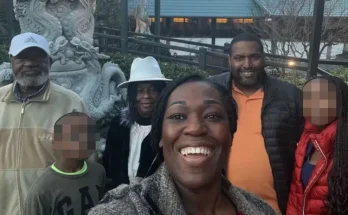Vice President Kamala Harris also joined the call, the White House said.
It marked the first phone call between the two leaders in months, and since fighting has intensified in the Middle East as Israel continues its war against Hamas in Gaza while also seeking to root out Hezbollah infrastructure in Lebanon.
White House press secretary Karine Jean-Pierre told reporters the call lasted about 30 minutes and included a “range of issues.”
“It was direct. It was productive,” Jean-Pierre said.
MORE: After a year of war in Gaza, American diplomacy proves futile so far: ANALYSIS
The majority of the call was spent discussing Israel’s plans to retaliate against Iran, but the future of Israel’s campaign against Hezbollah in Lebanon was also discussed at some length, according to a U.S. official familiar with the call.
Israel is currently weighing its response to a missile attack by Iran last week. The barrage of strikes was largely shot down by Israel, with the help of the U.S. military, and did not result in any major loss of life.
While Netanyahu didn’t present a fully finalized vision for a counterattack, members of the Biden administration were still relatively satisfied with the level of detail that was shared and felt the Israeli government was receptive to their arguments for sticking to conventional military targets rather than nuclear or oil production sites, the U.S. official familiar with the call said.
The Biden administration hoped to rein in the Israeli answer to the strikes. But so far, his diplomatic efforts in the region have been largely thwarted.
The U.S. official said that despite the strained relationship between Biden and Netanyahu, the atmosphere of Wednesday’s call was cordial.
The two leaders agreed to remain in close contact over the coming days, both directly and through their teams, according to a White House readout of the call.

Defense Secretary Lloyd Austin was set to meet with Israeli Defense Minister Yoav Gallant in Washington this week, but Gallant postponed his trip to the U.S.
When asked why Gallant was postponing the trip, Pentagon deputy press secretary Sabrina Singh referred questions to the Israeli government.
“You’d have to speak to the Israelis on that one. I was just told that he postponed his trip,” she said during Tuesday’s press briefing.
An hour before the Pentagon’s announcement, Israeli newspaper Haaretz cited sources as saying Netanyahu had “demanded” Gallant not leave for the U.S. until he spoke with Biden.
Benny Gantz, Israel’s former defense minister, posted on X that the cancellation of the trip harmed Israel’s national security “for personal and political considerations.”
MORE: Biden administration faces diplomatic frustrations in Lebanon, Gaza
Gallant on Wednesday said Israel’s response to Iran’s attack will be “deadly, precise and above all surprising.”
“They will not understand what happened and how,” Gallant said.
Former President Donald Trump spoke with Netanyahu “about a week ago,” Netanyahu’s office confirmed to ABC News on Wednesday.
Trump “on his own initiative called” Netanyahu, the prime minister’s office said, and “congratulated” Netanyahu on “the determined and powerful actions that Israel carried out against Hezbollah.”
Jean-Pierre said she couldn’t speak to their conversation when asked for reaction to the Trump-Netanyahu call.
“President Biden had a conversation with the prime minister. They’ve had, as I mentioned, more than a dozen conversations since the past year, since Oct. 7 of 2023,” Jean-Pierre said. “And I think what you have seen from this administration, is the continued support for Israel’s security.”



